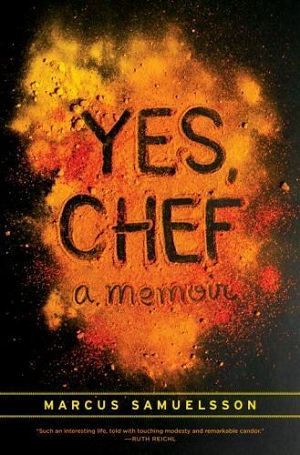
Yes, Chef:
A Memoir
by Marcus Samuelsson
Random House, 2012
Reviewed by Barbara Free, M.A.
Growing up in Sweden, Marcus was nearly always the only black child in his school class. There were times when another child would tease or bully him, but his parents were very supportive; they considered themselves a multi-racial family. He was taught to cook by his Swedish grandmother, who loved to cook, much more than did his mother.
This book is very well written, with many details about the difficulties encountered by anyone who wants to become a top chef, but also the subtle and sometimes very blatant racism that Marcus experienced in that field. Anyone who wants to become a chef should read this book first. He also discusses his feelings about his birth and adoption, how truly loving and supportive this adoptive parents were, and how he longed to know more about his birth family. His sister had a few memories, but very few. In adult life, she began searching for their family, and ultimately found relatives, including their father (apparently, he had not died after all).
After many years of struggle and hard work, Marcus did become a famous chef. We know him now from his books and especially from his PBS program, No Passport Required. He often speaks of his origins, his adoption, his life in Sweden and elsewhere, and his immigration to New York. He seems very comfortable discussing all of it in both his writings and in his interactions with other people. His adoptive parents apparently were equally comfortable with all of it, and with his ultimate search and reunion with his birth family. It’s a great book for anyone who really likes fine food and loves the details of seasonings, flavors, etc., and it’s also a great book for anyone with an interest in adoption-related stories.
Excerpted from the February 2021 edition of the Operation Identity Newsletter
© 2021 Operation Identity